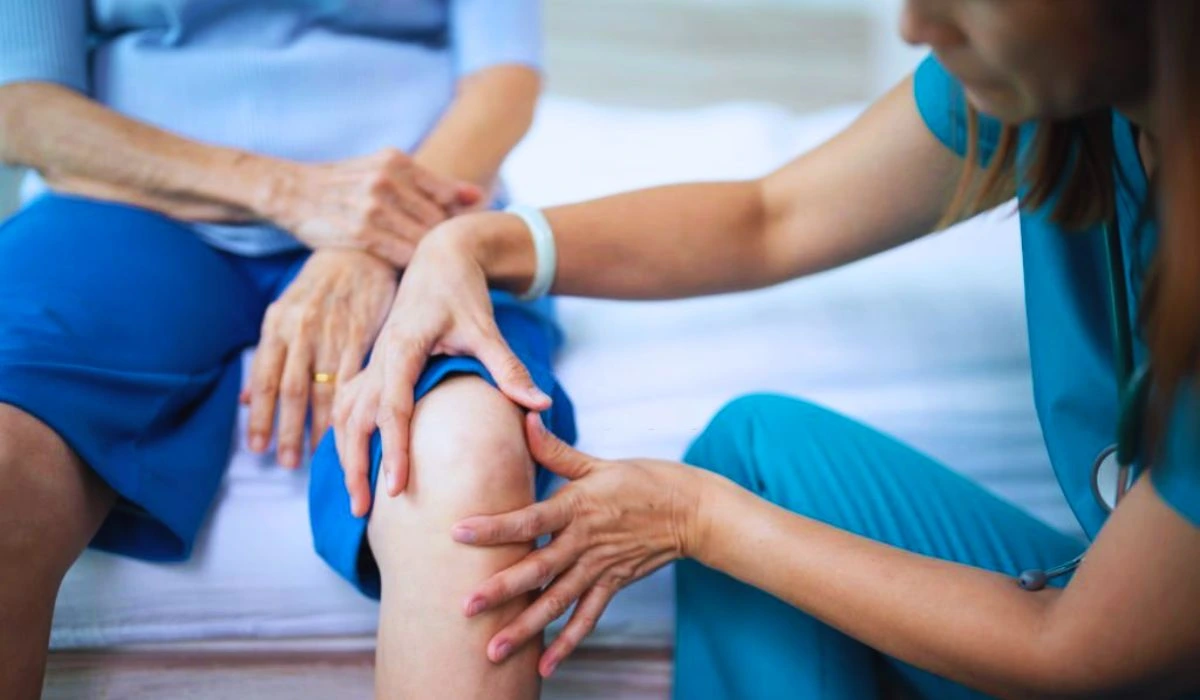Rheumatoid arthritis (RA) is an autoimmune disease that causes chronic inflammation of the joints. It typically affects the small joints in the hands and feet first, such as the knuckles and toes. RA causes swelling, pain, and stiffness that can worsen over time.
Early diagnosis and treatment are key to preventing or slowing joint damage and disability. Knowing the early signs of rheumatoid arthritis allows for early intervention. This article will cover the early symptoms, causes, stages, and treatment, and provide frequently asked questions about rheumatoid arthritis.
What Are The Causes Of Rheumatoid Arthritis?
The exact cause of rheumatoid arthritis is unknown, but researchers believe it is triggered by a combination of genetic and environmental factors. People with a family history of RA are at higher risk. Smoking also increases the risk.

When a person has a genetic predisposition, something in their environment likely triggers the immune system to attack the joints and cause inflammation. This could be a virus, bacteria, or other environmental factor.
The immune system mistakes healthy tissues and cells for foreign invaders and releases chemicals that damage the joints over time. This leads to the swelling, pain, and damage associated with RA.
Understand The 4 Stages Of Rheumatoid Arthritis
Rheumatoid arthritis progresses in stages over time if left untreated. The stages are:
- Early RA: This first stage lasts about 6 months to 2 years. Symptoms are mild but increasing. They include fatigue, joint pain, stiffness, and swelling in smaller joints first. Low-grade fever, appetite loss, and weight loss may occur.
- Moderate RA: This middle stage lasts 2-10 years as symptoms worsen. More joints are affected with increased swelling and pain. Joint damage is visible in X-rays. Symptoms interfere with daily activities.
- Severe RA: The late stage occurs 10+ years after onset. Multiple joints are damaged, deformed, weakened, and unstable. Chronic pain is common and disability is likely. Medications may stop working. Surgery may be required.
- End Stage RA: This final stage is marked by serious joint damage and loss of function. Pain is severe even with rest. Low remission rates. Can lead to loss of mobility.
How To Cure Rheumatoid Arthritis Permanently?
While there is no known cure for rheumatoid arthritis, early diagnosis and aggressive treatment can put the disease into remission and prevent joint damage. Treatment focuses on controlling inflammation, relieving symptoms, slowing disease progression, and improving quality of life. Some tips include:
- See a doctor at the first signs of joint pain and swelling. Starting treatment early is key.
- Take prescribed anti-inflammatory medications like DMARDs, biologics, steroids, and NSAIDs to reduce inflammation.
- Maintain a healthy diet rich in anti-inflammatory foods like fish, nuts, oils, and vegetables. Avoid processed foods.
- Get regular low-impact exercise like walking, swimming, or yoga to improve joint mobility.
- Use splints, braces, or supports to stabilize weakened joints.
- Apply heat/ice packs to ease joint pain and stiffness.
- Quit smoking and limit alcohol which worsens symptoms.
- Reduce stress through meditation, therapy, massage, etc. Stress can trigger flares.
- Have regular blood tests to monitor disease progression and adjust medications as needed.
While RA has no cure, following an early and aggressive treatment plan can effectively control symptoms and allow patients to manage their condition long-term.
Conclusion
Rheumatoid arthritis is a chronic autoimmune disease that causes progressive joint damage, pain, and disability. Knowing the early signs allows for early diagnosis and treatment to limit disease progression. Early symptoms include fatigue, joint stiffness, swelling, and pain in smaller joints first.
RA progresses through 4 stages that worsen without treatment. While there is no known cure, early and aggressive treatment with DMARDs, biologics, and lifestyle changes can put RA into remission and allow patients to live well. Proper management can control symptoms long-term and improve overall quality of life.
FAQs
A: Early signs include joint pain, swelling, and stiffness first thing in the morning or after rest. It typically starts in smaller joints like the fingers, toes, wrists, and ankles first.
A: Consult a doctor if you have persistent joint pain and swelling for over 6 weeks, particularly in multiple smaller joints. Fatigue, fever, and weight loss may also indicate early RA.
A: The exact cause is unknown but believed to be a combination of genetic and environmental factors that trigger an inappropriate autoimmune response.
A: Yes, rheumatoid arthritis is an autoimmune disease where the immune system mistakenly attacks healthy joint tissues, causing inflammation and damage over time.
A: There is no known cure for rheumatoid arthritis at this time. However, early diagnosis and aggressive treatment can put RA into remission, control symptoms long-term, prevent joint damage, and allow patients to maintain a good quality of life.

